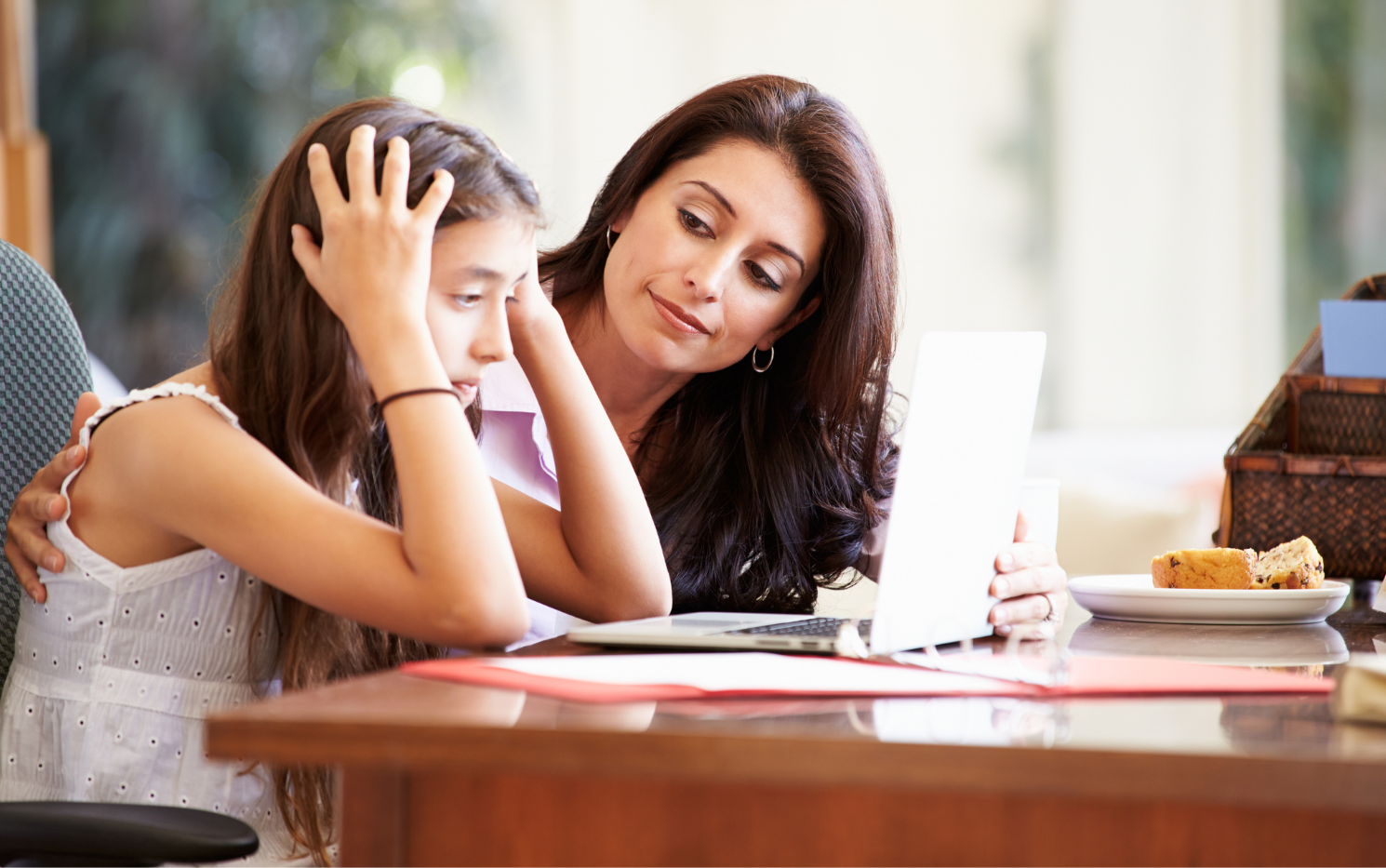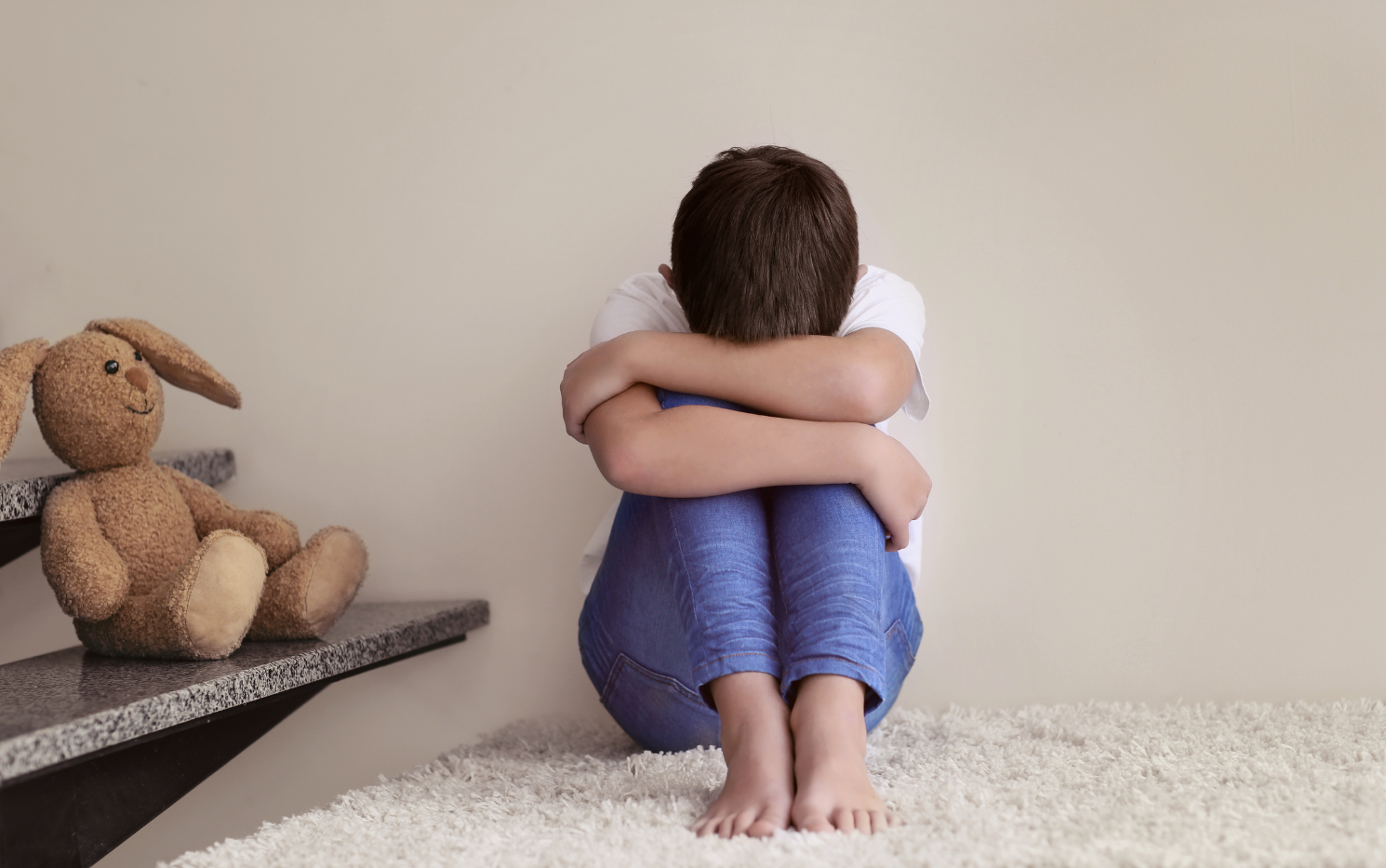Meta desc
Most parents today see stress as a common factor in their parenting. With so much to keep up with, children find themselves in a constant juggle of handling pressure. Are you, as a parent, seeing this quite often?
Your child may come back from school stressed about the upcoming football match. Or your teen who recently switched to another school may find adapting to the new environment a little stressful, even if it’s good stress.
Feeling a bit stressed about life’s challenges is normal. All kids and teens experience it. However, the problem arises when this stress is not managed appropriately, as it may affect their mental and physical health. Witnessing your child in such a situation can be very hard as a single parent. You can help your child navigate such tough times by guiding them with love and empathy.
Stress, Children and Single-Parenting
Why are Children Stressed Today?
There are several reasons why your child might experience stress. Well, for starters, take school! You might see your younger one stressed out under the massive pile of all that classwork, homework, and extra hours of studying to get good grades.
For teens, stress could be due to their changing hormones. You might also find your teen stressed out about figuring out who they are or fitting in with their peers, which are common factors that can stress them out.
Moreover, the stress of our children matching up with their parents’ and teachers’ expectations is also high. Besides, the pressure to do well in extracurricular activities and manage friendships or even conflicts at home can all be different factors that contribute to child stress.
Does that mean that all stress is negative? No, have you heard of positive stress?
Positive Stress: Eustress
Positive stress is the type of stress which is healthy for us. It helps us feel challenged and motivated to focus and achieve our goals. It’s the pressure we feel before an important event or something exciting. For example, let’s say your child is supposed to have his exams shortly. Stressful right? But what if this stress pushes him to give his best and do better? That’s positive stress in action!
However, this stress should only be short-lived. If it stays for too long, it can severely hinder your child’s health. For instance, if your child constantly worries about that exam to the point where it becomes difficult for him to focus or sleep, that’s an issue!
Signs of Stress in Children
Signs of Stress in Children
Children don’t usually have the skills to communicate what they feel inside. Each child may express themselves in their unique way. As a single parent, you can look for the following signs in your child to determine if they are stressed:
Anger is the first response to underlying stress. Acting out, getting cranky, or being easily annoyed are cues of a child being stressed. Snapping at their siblings or friends or getting upset over little things are some of the ways children may exhibit their anger.
Behaviour Issues
Children usually show behavioural changes when they are stressed. Some might suddenly go silent and prefer to stay alone. Some may throw temper tantrums, and others may suddenly not be interested in the things they used to enjoy.
Sleep Challenges
Too much internal stress directly impacts the sleep cycle. A stressed child would struggle to fall asleep. Without adequate sleep, your child might lose focus, creating a vicious cycle that affects their well-being.
Avoiding Responsibilities
Have you observed that your child is uninterested in daily chores? Pushing things, procrastinating, and avoiding the same things that they would enjoy are signs of underlying stress. When you confront them, they may even act rebellious. It could be because they might be stressed and want to avoid anything that adds to it.

Addressing Child Stress As A Parent
When your child is stressed, you will be the first person they look up to for guidance. As a parent, welcome them with open arms and give them a safe space to express themselves. Listen to them. You can share your experiences with them or suggest possible steps that they can take for themselves.
For example, if you find your child stressing over a school project, instead of doing it for them, offer your help through options like researching or brainstorming ideas for the project. It is crucial to let them make their own decisions for themselves so that they can learn to handle their problems and become independent.
What Can You Do As A Parent?
What Can You Do As A Parent?
Let’s discuss what you can do as a single-parent, an anchor in their lives:
Open for Conversation
Try having soulful conversations with your child whenever they are stressed. Such heartfelt chats can be immensely comforting for a stressed mind. However, if your child is not ready to open up for a conversation, that’s fine, too. You don’t have to force them into talking. Let them know that you respect their privacy and are there to listen to them whenever they are comfortable.
Listen Before Sharing Guidance
As a single parent, you might feel the urge to guide your child whenever you see them under stress. But it does not always have to be that way. Before jumping in with the advice, knowing about the child’s needs is also essential. Whenever you see your kid stressed, ask them whether they require your advice as a parent or wish for a friendly listener to hear them rant. It’s necessary to make them feel comfortable and talk according to their needs.
Writing about their Feelings
Please encourage your children to write down their thoughts on paper. Writing is a great way to express yourself, not just for your teens and adolescents but also for adults. It helps to clear the chaos in your mind and lets you think clearly.
Quick Stress-Relief Ideas
As a single parent, you can use simple and quick activities, especially with your small kids, to help them destress. Simple tasks like snuggling up with your child and reading their favourite story to them or giving them a relaxing massage can be easy ways to relieve stress from your children and help them forget about their worries for a while.
Suggest Deep Breathing Exercises
Breathing can be a great way to calm down the stressed mind. Suggest your child to take deep breaths in highly stimulating and stressful situations. It is scientifically proven to be a simple and effective method of self-regulation to relax one’s nervous system. Teach them to practice it consistently to help them clear their mind and gain clarity.
Negative Thoughts and Rephrasing them
Our thoughts possess extraordinary powers. As a single parent, you need to educate your child about the power of positive thinking so that they can become mentally powerful. Please encourage them to have a positive attitude toward themselves. Teach them to be aware of negative thoughts like “I’m not good enough” or “I’m a failure,” and rephrase them with positive ones, like “I’m capable” and “I’ll give my best in every shot.”
Consider Doing an Activity
Engaging with your child in an activity can also be a great way to connect with them. You can try something you both enjoy doing, like baking, painting or playing a sport. Suggesting such activities to your children can be a fun way to help them relax and divert their minds from stressful thoughts. Moreover, doing stuff together gives them a sense of belonging and makes them feel like you are there for them.

We all live in a fast-paced world. With so much happening around us and the clock constantly ticking, our children may feel overwhelmed trying to cope with life’s challenges. We understand that you might also be juggling responsibilities as a single parent.
We know it’s difficult and might even be stressful for you. However, by listening to your children and encouraging them to develop positive habits like journaling or deep breathing, you can help them navigate life’s stresses. Remember that Rooting You is also here for you and your child. Our counsellors are always available to lend an ear and offer support whenever you need assistance.

Lavina has a strong passion for human psychology and a deep desire to understand the unique challenges faced by parents. Her personal experience as a parent has inspired her to establish Rooting You. Her writing offers comfort and serves as a valuable resource for single parents navigating the challenges of raising children on their own.


